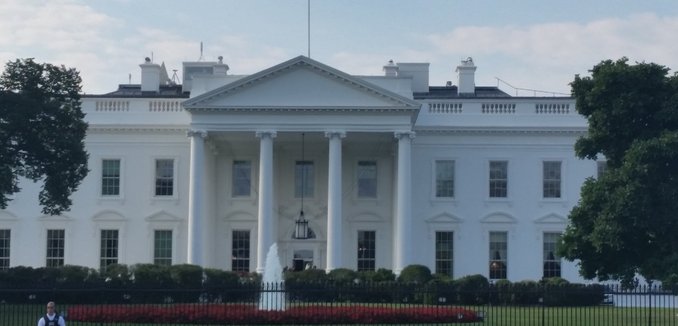The Trump administration announced on Thursday that it would once again waive sanctions against Iran’s banking and oil industries in line with the 2015 nuclear deal, but signaled that it would take a tougher stance towards enforcing the deal’s implementation.
The announcement of the waiver came hours after the United States Treasury Department imposed new non-nuclear sanctions against a number of businesses and individuals for helping Iran’s ballistic missile program and launching cyber-attacks against the U.S.
“The new sanctions on non-nuclear matters signal President Trump’s determination to confront Tehran over actions the United States considers destabilizing to the region and in defiance of the intent of the landmark 2015 nuclear deal,” The Washington Post reported.
“The administration seeks to bring a change in Iran’s behavior,” a senior administration official told the Post, identifying Iran’s continued ballistic missile development program, its support of terrorist groups such as Hezbollah, its use of Shiite militias in neighboring countries, and its ongoing human rights abuses including its jailing of Americans and other foreigners, as examples of the behavior that the administration seeks to change.
The continued waivers on sanctions have been described by the administration as a “holding action” until October, when Trump will decide whether or not to decertify the nuclear deal according to the terms in the Corker-Cardin legislation that states how the U.S. government would handle the nuclear deal.
Earlier this month, U.S. Ambassador to the UN Nikki Haley said that Trump might decertify Iran’s compliance with the deal on grounds that it was not in the national security interests of the U.S.
Last week, Eli Lake of Bloomberg View suggested that Trump could use the coming weeks to convince European allies—the United Kingdom, France and Germany—to go along with renegotiating the deal to strengthen its weaknesses.
The Associated Press reported earlier Thursday that Trump could possibly opt to decertify and stay in the deal, and then threaten to re-impose secondary sanctions on European and other banks forcing them to choose between doing business with Iran or being cut off from the U.S. banking system.
Later, Foreign Policy obtained a memo that mapped out such a plan. According to the memo, Trump would decertify Iran’s compliance with the nuclear deal and then threaten to impose a “de-facto global economic embargo” on Iran if Tehran does not change its behavior in the next 90 days.
“President Trump has made it clear.… We must take into account the totality of Iranian threats, not just Iran’s nuclear capabilities — that is one piece of our posture towards Iran,” Secretary of State Rex Tillerson said in a joint press conference with UK Foreign Secretary Boris Johnson. “In our view, Iran is clearly in default of these expectations” of the nuclear deal, he added.
[Photo: soccerdhg / Flickr ]




